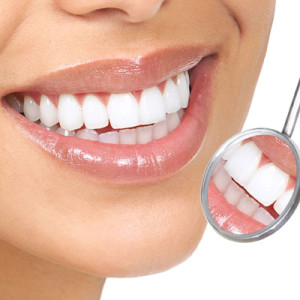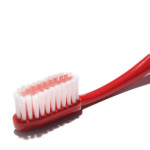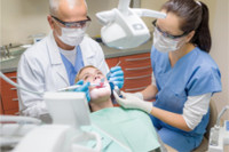 Those who suffer from uneven, chipped, or stained teeth find that porcelain veneers are the ideal solution. Usually, an imperfect smile causes one to feel self-conscious, thus leading to low confidence and low self-esteem. In situations like these, the individual may end up covering their mouth when they smile, or perhaps won’t even smile at all. Porcelain veneers are a great way to achieve a beautiful smile and regain one’s confidence.
Those who suffer from uneven, chipped, or stained teeth find that porcelain veneers are the ideal solution. Usually, an imperfect smile causes one to feel self-conscious, thus leading to low confidence and low self-esteem. In situations like these, the individual may end up covering their mouth when they smile, or perhaps won’t even smile at all. Porcelain veneers are a great way to achieve a beautiful smile and regain one’s confidence.
Porcelain material is very durable and it holds comparable properties to natural tooth enamel. For example, porcelain and enamel are alike in color, texture, and translucence. Though, porcelain unlike natural teeth does not decay or stain. Any stains or damage to the teeth can be fixed by placing a thin layer of porcelain. This certainly creates a great smile.
How to Apply Porcelain Veneers
Prior to the application of porcelain veneers, the teeth surface must first be roughened so that the veneers will attach better to the teeth. Afterward, a teeth mold is made to ensure that the veneers will fit perfectly. Once the porcelain veneers are constructed, the patient goes back to the dentist to ensure that the veneers are the proper shade and that they are a perfect fit. This is the time when necessary shaping and trimming are done. The teeth of the patient are cleaned thoroughly then the porcelain veneers are attached to the teeth permanently.
Those who have stained teeth may want to think about teeth whitening treatment before proceeding with a porcelain veneer procedure. There is a chance that dark stains and discolorations may appear through the porcelain, and as soon as the veneers are applied, it will be useless to go through a whitening treatment.
To complete the entire porcelain veneer procedure, two dental visits are necessary. For a pain-free experience, a local anesthetic is usually used.
What to Expect After Application of Your Dental Veneers
Porcelain veneers are durable and permanent so they should last when they are cared for properly. These veneers should feel natural enabling you to do the same functions that you are used to with your natural teeth. Extra care is necessary by avoiding ice cubes and hard candies as veneers can be chipped when chewing on or biting into hard substances. In addition, stay clear from grinding or clenching your teeth because this can cause deterioration.

 Patients want a dentist who is as thorough as possible in providing dental care. Dr. Stephen Muecke, along with his associates and hygienist pride themselves in following the ADA guidelines in caring for both new and existing patients. Each individual is provided with the most comprehensive dental exams available. The exam is performed using a stringent examination procedure combined with radiography.
Patients want a dentist who is as thorough as possible in providing dental care. Dr. Stephen Muecke, along with his associates and hygienist pride themselves in following the ADA guidelines in caring for both new and existing patients. Each individual is provided with the most comprehensive dental exams available. The exam is performed using a stringent examination procedure combined with radiography.



